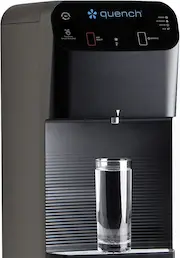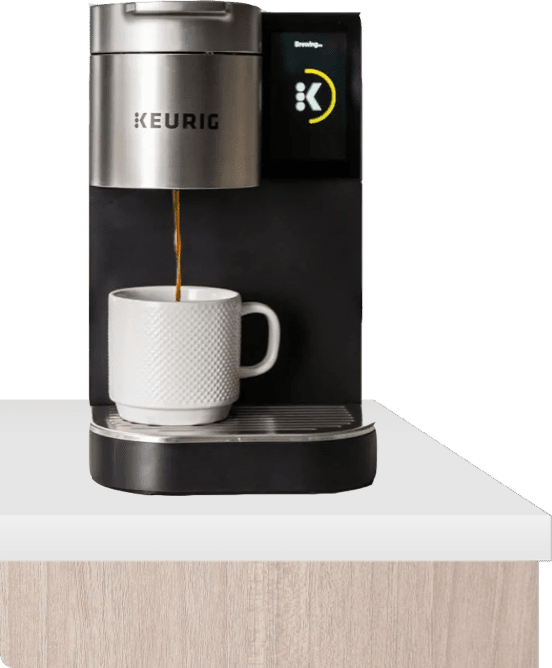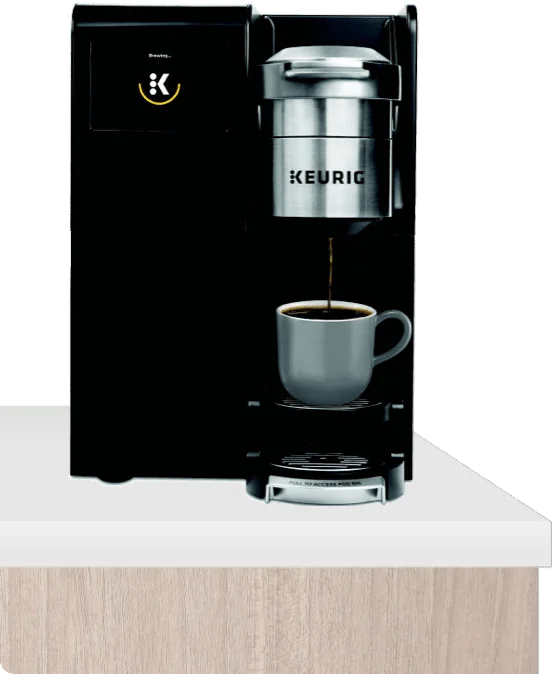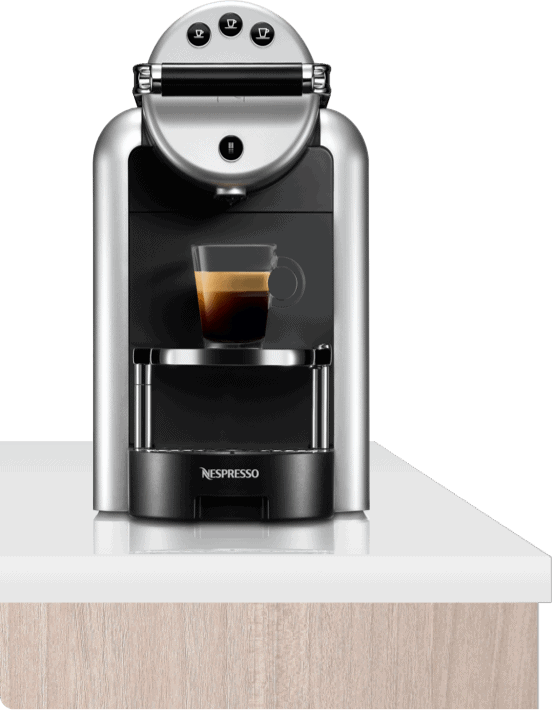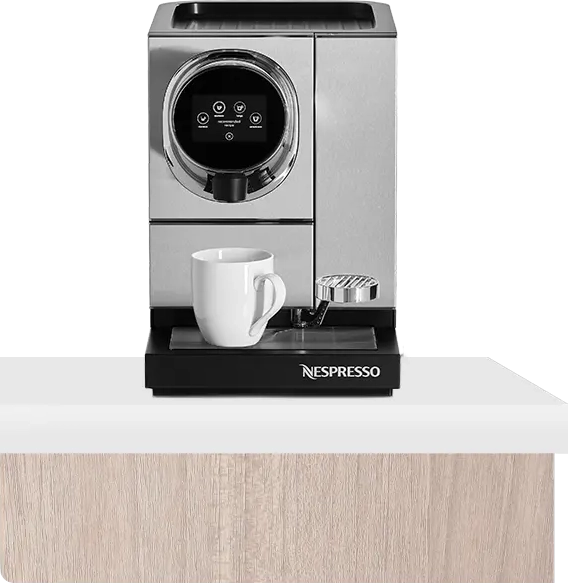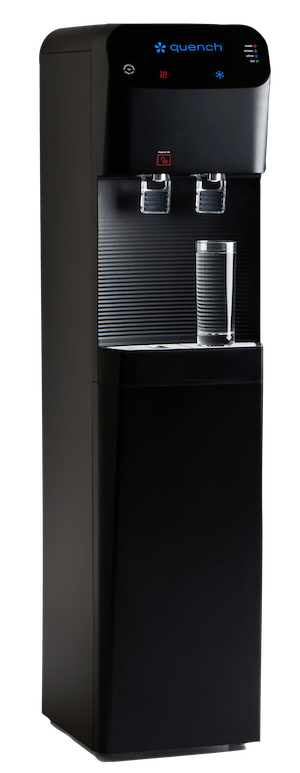Coffee remains both a household staple and a favorite beverage in the workplace. Yet, amidst the continued American love affair with coffee, there’s a rising star that’s been quietly gaining prominence — decaffeinated coffee. The rise of decaf coffee is making a collective shift toward more mindful beverage choices at work.
We’re exploring everything you need to know about decaffeinated coffee and providing insights into its unique qualities and benefits.
What Is Decaffeinated Coffee?
Decaffeinated coffee, more commonly referred to as “decaf” coffee, is an alternative to traditional java, where regular coffee beans go through a process to remove a majority of the caffeine content. While normal coffee is typically brimming with the popular stimulant, a decaf option undergoes caffeine extraction. This way, individuals can savor the rich flavors and comforting warmth of coffee without the potential jitters, sleep disturbances, or other side effects of excessive caffeine intake.
How Much Caffeine Is in a Decaffeinated Cup of Joe?
According to the National Coffee Association, the decaffeination process eliminates around 97% or more of the caffeine present in coffee beans. As a result, a standard serving of decaffeinated coffee will likely contain approximately 2 mg of caffeine — in contrast to regular coffee, which generally boasts about 95 mg of caffeine per cup. Therefore, coffee drinkers can rest assured that, while not completely stimulant-free, the caffeine extraction process does a great job of limiting caffeine intake.
Is Regular Coffee or Decaf Coffee More Popular?
Today, caffeinated coffee still reigns as the more popular choice between the two, with Drive Research revealing that only 18% of coffee drinkers prefer a decaf option to a caffeinated one, and 32% stating that they drink both. However, recent years have demonstrated that Americans are drinking decaf coffee more and more.
Here are just a few of the main reasons why decaf beverages are gaining popularity across the country:
- With a growing emphasis on health and wellness, decaf coffee provides a delicious taste of java while minimizing caffeine intake and the potential side effects of too much caffeine.
- Decaf java ensures coffee lovers can enjoy this beloved beverage throughout the day without worrying about causing restlessness at night.
- Offering a decaf alternative makes sure everyone, including those with caffeine sensitivity or pregnant individuals, has access to coffee without concerns about the caffeine content.
- Individuals enjoy the unique, smooth, and rich flavor profile offered by decaf coffee.
Understanding the Decaffeination Process
Because coffee beans naturally contain caffeine, a meticulous extraction process removes most of the stimulant to leave you with only the essence of coffee’s taste and aroma. The delicate transformation unfolds through a series of steps:
- Pre-wetting: The process starts by soaking raw coffee beans in water or steaming them to prepare them for decaffeination.
- Caffeine extraction: The next step involves introducing caffeine-selective solvents or water to the beans, then dissolving and extracting the caffeine molecules.
- Caffeine separation: At this point, the caffeine-rich solvent or water is separated from the coffee beans, isolating and removing the caffeine content.
- Caffeine isolation: In this crucial stage, the caffeine is isolated and removed from the liquid, leaving you with a caffeine-free solvent or water.
- Flavor reinfusion: Finally, the water or solvent is reintroduced to the coffee beans, allowing them to absorb flavor compounds lost during the initial removal.
The Swiss Water Process
As an alternative, the Swiss Water Process stands as a remarkable natural decaffeination method based solely on water and carbon filtration. Because this technique accomplishes decaffeination without the use of chemical agents, it’s particularly well-suited for decaffeinating organic coffee beans and preserving their flavor components.
The steps for this decaffeination method include:
- Bean immersion: With this approach, coffee beans are initially immersed in hot water to pull out both caffeine and flavorful components.
- Coffee bean discard: After immersion, the initial coffee beans used are discarded, leaving behind a flavor-rich water known as “green coffee extract.”
- Carbon filtration: Next, the green coffee extract is subjected to carbon filtration, employing a specialized filter designed to capture large caffeine molecules.
- Decaffeination continues: Now that the green coffee extract is free of caffeine, it’s used to wash and filter the next batch of coffee beans to ensure a rich flavor. By the end of this, you’ll have a decaffeinated cup of joe ready to go.
The Pros and Cons of Decaffeinated Coffee
While decaffeinated coffee continues to gain popularity among workers and coffee enthusiasts alike, let’s take a closer look at the pros and cons of drinking coffee that’s been decaffeinated.
The Perks of Decaf
- Controlling caffeine intake: While a jolt of energy can be a great way to start the day, too much of the popular stimulant can have negative consequences like increased anxiety and digestive discomfort. Decaffeinated coffee ensures you can enjoy the rich flavor of coffee without the energizing effects of caffeine, making it a great option for those looking to minimize their caffeine intake or avoid it altogether.
- Improving sleep quality: Ingesting high amounts of caffeine throughout the day can inevitably keep you up at night or disrupt your sleep pattern. With decaf coffee, individuals are free to drink the beverage at any time of the day without the fear of disturbing a good night’s rest.
- Offering health benefits: A report from the National Library of Medicine reveals that decaffeinated coffee contains many of the antioxidants and beneficial compounds found in regular coffee — including chlorogenic acid, which reduces the risk of diabetes and high blood sugar.
- Reducing jitters and anxiety: It’s common for individuals with caffeine sensitivity to experience jitters, an increased heart rate, and higher levels of anxiety after consuming regular coffee. A decaf cup of joe offers these individuals a delicious coffee experience without the harsh side effects.
- Boosting digestive comfort: Drinking an excessive amount of caffeinated coffee can quickly lead to digestive discomfort, including acid reflux or an upset stomach. Decaf alternatives are gentler on the stomach, making this a beneficial option for those with delicate digestive systems.
The Potential Drawbacks of a Decaf Alternative
- Flavor differences: Although subtle, decaffeinated coffee has a slightly altered flavor profile from regular coffee. This means your coffee enthusiasts may notice a milder or less robust taste when opting for a decaf cup, but, fortunately, it’s generally hard for most people to tell much of a difference.
- Higher costs: You may avoid choosing a decaffeinated alternative because it’s more expensive than the regular coffee at their local shop. Why? This is due to the additional processing steps required to remove the caffeine. However, when you partner with trusted office coffee service providers like Quench, they can offer great-tasting java while keeping overall costs down.
- Limited energy boost: Individuals who drink coffee for an energy kick should recognize that decaf won’t deliver the same level of alertness. Luckily, those who enjoy the stimulating effects of caffeine can always opt for its traditional caffeinated counterpart when they need an extra boost.
If you’ve been wondering whether regular or decaf coffee is better for you or your employees, the answer isn’t so clear-cut. Ultimately, the decision to enjoy decaf or regular coffee comes down to personal preference and individual health considerations.
Why Choose Quench As Your Coffee Service Provider?
If your workplace is looking for a way to provide tasty decaf coffee to your employees, guests, and customers, Quench can help. Our wide variety of coffee machines simplifies the brewing process and ensures every valuable team member has access to great-tasting decaffeinated coffee on demand.
You can explore all of the decaffeinated alternatives we have available in our coffee menus to find the options and flavors that are just right for your team:
- Thermal Coffee Brewer Menu
- Pod Coffee Brewer Menu
- Keurig Coffee Brewer Menu
- Nespresso Coffee Brewer Menu
By choosing Quench to provide your workplace with decaf java, you can effortlessly order new flavors, break room supplies, or coffee machine accessories through our customer portal. And, rest assured that our units include advanced water filtration systems to emphasize cleanliness as much as taste and flavor.
For an endless supply of fresh, clean, and delicious decaf coffee at work, you can schedule an appointment with a Quench Coffee Expert today.
